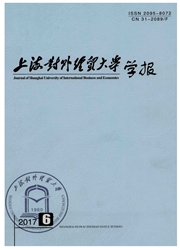

 中文摘要:
中文摘要:
资本主义的发展,特别是全球贸易的进行,将生态环境问题从局部扩散到其他区域。“一带一路”沿线的多数国家既是发展中国家,又是生态环境较为脆弱的地区。在“一带一路”战略合作的框架下,需要贸易商承担更多的生态责任,同时从国际法和国内法的角度,约束贸易商的行为,实现生态环境的优化和保护。除了在国际上坚持共同但有区别的责任、去政治化原则,还应当在国内对污染者负担原则进行补充,采取从“末端治理污染”责任走向全方位责任的方法规制贸易商生态责任。
 英文摘要:
英文摘要:
As capitalist develops, especially with the global trade developing, the ecological and environmental problems are from local spread to other regions. Countries which has a relationship with the Strategy of "One Belt One Road", is both the developing countries and the ecological-fragile area. Thus, traders shall take more ecological responsibility. And from the perspective of international law and domestic law, government should do more constraints on the traders, optimize and protect the ecological environment. In addition to adhere to both common but differentiated responsibilities and de-politicization principles, China shall drop end-of-pipe treatment and insist on full responsibility for traders.
 同期刊论文项目
同期刊论文项目
 同项目期刊论文
同项目期刊论文
 期刊信息
期刊信息
